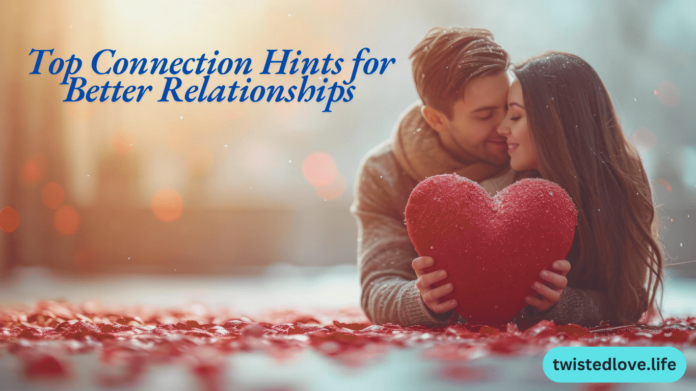Connection Hints, Relationships are like gardens—they flourish when nurtured but wilt when neglected. If you’re looking to strengthen your bonds, whether romantic, platonic, or familial, these actionable tips will help you build stronger, more meaningful connections.
Why Strong Connections Matter
The Role of Emotional Bonding
Emotional bonding is the glue that holds relationships together. It’s about feeling understood and valued by someone who truly gets you. Without it, relationships can feel hollow and unfulfilling.
Benefits of Meaningful Relationships
Strong connections improve your mental health, boost happiness, and even contribute to longer life expectancy. Plus, having someone to share life’s highs and lows with? Priceless.
Communication Is Key
Active Listening as a Foundation
Listening isn’t just waiting for your turn to speak. It’s about fully engaging, nodding, maintaining eye contact, and genuinely understanding what the other person is saying.
Avoiding Common Communication Pitfalls
Misunderstandings often arise from assumptions or interruptions. Try clarifying instead of guessing, and always let the other person finish their thoughts.
The Power of Nonverbal Cues
Your body language speaks volumes. A smile, a gentle touch, or leaning in while someone speaks shows you’re engaged and care about the conversation.
Building Trust in Relationships
Consistency and Reliability
Connection Hints, Trust isn’t built overnight. It’s about showing up, keeping promises, and proving over time that you’re dependable.
How Vulnerability Strengthens Bonds
Sharing your fears, dreams, and insecurities invites deeper connection. It’s a two-way street—open up, and others will too.
Prioritizing Quality Time Together
Making Time in a Busy Schedule
Life gets hectic, but prioritizing time for loved ones signals their importance. Even a quick coffee date or a 10-minute check-in can make a difference.
Activities That Foster Connection
Try cooking a meal together, going for a hike, or even playing board games. Shared experiences create lasting memories and deepen your bond.
The Importance of Empathy
Understanding Each Other’s Perspectives
Put yourself in the other person’s shoes. When you see things from their angle, you’ll be less likely to judge and more willing to compromise.
Practicing Patience and Compassion
Empathy requires patience. Take a breath before responding, and remind yourself that everyone has their struggles.
Conflict Resolution Tips
Addressing Issues Early
Don’t let small issues fester into big problems. Discuss concerns as soon as they arise to avoid resentment.
Staying Calm During Disagreements
Easier said than done, right? Take breaks if things get heated, and approach the conversation when both of you are calm.
Finding Solutions That Work for Both Parties
Compromise isn’t about losing; it’s about finding common ground. Solutions should make both parties feel heard and valued.
Growth and Adaptability
Embracing Change Together
Life is full of surprises. Embrace them as a team, adapting and growing together rather than drifting apart.
Celebrating Individual and Shared Goals
Support each other’s dreams while celebrating shared achievements. Balance is key to maintaining independence within a strong partnership.
Conclusion
Connection Hints, Strong relationships require effort, but the rewards are immeasurable. By focusing on communication, trust, empathy, and quality time, you’ll build connections that can weather any storm. Remember, the little things—like listening, smiling, or simply being present—are often the most powerful.
FAQs
How do I rebuild trust in a relationship?
Rebuilding trust takes time and consistent actions. Be honest, open, and willing to address past mistakes while demonstrating reliability.
What are some fun activities for connecting with loved ones?
Try cooking a new recipe, exploring nature trails, or engaging in creative hobbies like painting or crafting together.
How can I improve communication with my partner?
Practice active listening, avoid interruptions, and use “I” statements to express your feelings without assigning blame.
Why is empathy so important in relationships?
Empathy fosters understanding and reduces conflict by helping you see the situation from the other person’s perspective.
How do I healthily handle conflicts?
Address issues early, stay calm, and focus on finding solutions rather than assigning blame. Use clear, respectful communication throughout.

